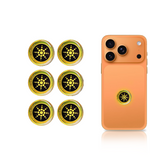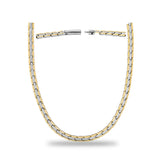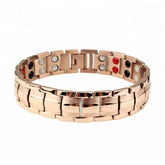You’re on your phone every day—texting, calling, scrolling. But have you ever wondered: Is all that screen time silently hurting you?
With smartphones practically glued to our hands, questions around cell phones radiation are heating up. Do phones emit radiation? (Yes, they do), Are cell phones dangerous in the long run? Does Cell Phone Radiation Cause Cancer?
It’s a hot debate. Some experts urge caution. Others say there’s no proof. Meanwhile, you’re stuck in the middle, wanting clarity—not confusion.
This article breaks it all down: what cell phone radiation is, how it works, what science says about the risks, and how to protect yourself.
We’ll explore insights from credible sources like the World Health Organization (WHO) and National Institutes of Health (NIH) to help you make informed choices.
Let’s get into the science—starting with what cell phone radiation really is.
What Is Cell Phone Radiation?
Cell phone radiation is the energy phones release to connect to cell towers. It’s called non-ionizing radiation, meaning it’s not like the harmful X-rays you get at the doctor’s office. Think of it like invisible waves carrying your call or text.
This mobile radiation powers every smartphone, but do cell phones emit radiation all the time? Yes, especially when you’re using data or making calls.
Older terms like “radiation telephone” referred to the same thing in early mobile devices. Today’s phones use radiation and cell phones to function, but the amount depends on your signal strength and phone model. Unlike dangerous radiation, these waves don’t break DNA—but questions about safety remain.
Is Cell Phone Radiation Dangerous to Humans?
Worried about cell phone radiation effects on the human body?
You’re not alone. When you hold your phone to your ear or carry it in your pocket, it’s close to sensitive areas like your brain or reproductive organs. Could this make cell phones and radiation a risky combo?
Here’s what we know:
- Brain exposure: Calls held against your head expose your brain to low-level radiation.
- Body impact: Phones in pockets may affect nearby tissues, like reproductive organs.
- Possible symptoms: Some report headaches or sleep issues, but evidence is mixed.
Think of it like standing near a warm lamp—it’s not burning you, but you feel something. Is cell phone radiation dangerous? Science hasn’t fully answered, but concerns persist about long-term effects.
Can Cell Phones Cause Cancer? What Science Says
The big question: Can cell phones cause cancer? The idea of cell phones and cancer worries many, especially with phones glued to our hands.
Simple Answer is "Current research shows no clear link between cell phone radiation and cancer. Most studies find no significant risk from regular phone use."
However let’s look at the research behind cell phone cancer and cell phones cancer claims.
What WHO and IARC Say?
- In 2011, the World Health Organization’s International Agency for Research on Cancer (IARC) classified cell phone radiation as “possibly carcinogenic.” That means there’s some evidence linking cell phones cause cancer risks, but it’s not conclusive.
- A 2010 study, Interphone, found a slight increase in brain tumors among heavy users.
- More recently, the National Toxicology Program (NTP) in 2018 and Italy’s Ramazzini Institute in 2018 tested rats and found heart tumors after high radiation exposure.
But here’s the flip side: critics, including the FDA, argue there’s no clear proof cell phones cause cancer. Cancer rates haven’t spiked despite phone use soaring. The debate continues, and more studies are needed to settle if cell phone cancer is a real threat.
Studies Showing Potential Health Effects
Beyond cancer, cell phone radiation effects on the human body include other concerns. Research on cell phones and radiation has flagged a few risks, though human impacts aren’t fully confirmed. Here’s a snapshot:
- Heart tumors: NTP’s 2018 rat study found heart schwannomas after intense radiation (Source: NIH). Animal results don’t always apply to humans.
- DNA concerns: A 2005 study by Henry Lai suggested possible DNA damage, but later research disagreed.
- Blood-brain barrier: A 2009 study showed radiation might make this brain shield leakier, though effects were temporary.
- Fertility: Some 2010s studies linked radiation to lower sperm quality, but results vary.
Note: Animal or lab studies don’t always mean the same for humans. Still, these findings keep the conversation about radiation and cell phones alive.
Are Children More at Risk?
Kids love their phones, but could cell phone radiation hit them harder? Children’s thinner skulls and growing brains absorb more radiation than adults.
Plus, they’re exposed earlier, racking up years of cell phones and cancer risks over time. Picture a sponge soaking up water—that’s how kids’ bodies take in radiation compared to adults.
Studies are limited, but the American Academy of Pediatrics in 2016 urged caution, suggesting parents limit kids’ phone time. Heavy screen use also means more exposure. For parents, it’s a wake-up call to set boundaries, like no phones at bedtime. You can read a complete blog about it here.
Can Your Phone’s Radiation Cause Testicular Cancer?
Your phone is always with you, but could its radiation be a hidden health risk? Cell phone radiation can damage cells and DNA, impacting fertility by harming sperm production.
While sperm itself isn’t linked to testicular cancer, this disease often starts in the cells that produce sperm. So, does phone radiation cause testicular cancer or other cancers? The truth is, we don’t have clear answers yet.
Cancer Research UK notes that testicular cancer lacks obvious preventable risk factors, and long-term data on phone radiation is still limited.
But here’s the kicker: more scientists are raising red flags about potential cancer links. With cancer being so complex, why take chances?
Protect yourself now. An anti-radiation phone Stickers, like those from EMFTITAN, can shield your body from harmful EMF waves. Plus, regular self-checks for lumps or changes in your testicles are a must. Stay proactive—explore Does EMF Radiation Can Affect Human Fertility? and reduce your risk today!
Myths vs. Facts About Cell Phone Radiation
Misinformation about cell phone radiation is everywhere. Let’s clear things up with a quick myth-busting table:

How to Reduce Exposure Without Giving Up Your Phone
Is your cell phone dangerous? Not if you use it wisely. Since do phones emit radiation is a yes, here are simple ways to cut exposure without ditching your device:
- Use speakerphone or wired headphones: Keep the phone away from your head.
- Shorten calls: Text or use landlines for long chats.
- Avoid low signals: Weak bars mean more radiation.
- Don’t sleep with your phone: Keep it off your bed or in airplane mode.
- Download, don’t stream: Streaming emits more radiation.
- Try EMF-blocking cases: Some products, like those from trusted brands, claim to reduce radiation.
These steps are easy and keep you safer while enjoying your phone.
What Are Regulators Doing About It?
Are regulators keeping cell phone radiation in check? The FCC sets Specific Absorption Rate (SAR) limits for phones, ensuring they don’t emit too much radiation.
But a 2019 Chicago Tribune test found some phones, like certain Apple and Samsung models, exceeded SAR limits when close to the body.
Senator Richard Blumenthal in 2019 called out the FCC and FDA for lax 5G safety research, pointing to outdated 1996 rules.
Globally, WHO and others monitor risks, but testing often relies on manufacturers. Groups like the Environmental Health Trust are pushing for tougher standards. For now, transparency is spotty, leaving users to stay proactive.
Final Thoughts: Should You Be Worried?
Cell phone radiation is real, but is it cell phone dangerous? Science says risks like cell phones and cancer are possible but not proven. Studies show mixed results, and regulators set limits, though gaps remain.
There’s no need to panic—smart habits can lower exposure while you stay connected.
Stay informed, try our safety tips, and protect your health. What steps do you take to use your phone safely? Share below!
Frequently Asked Questions
- Do cell phones cause cancer?
No definitive proof shows cell phones cause cancer, but some studies suggest a possible link. WHO calls it “possibly carcinogenic,” so caution is wise.
- Is cell phone radiation harmful to children?
Kids may absorb more cell phone radiation due to thinner skulls. Limiting phone time is a smart move for parents.
- How can I reduce radiation from my phone?
Use speakerphone, avoid low-signal areas, and try EMF-blocking cases to cut radiation and cell phones exposure






